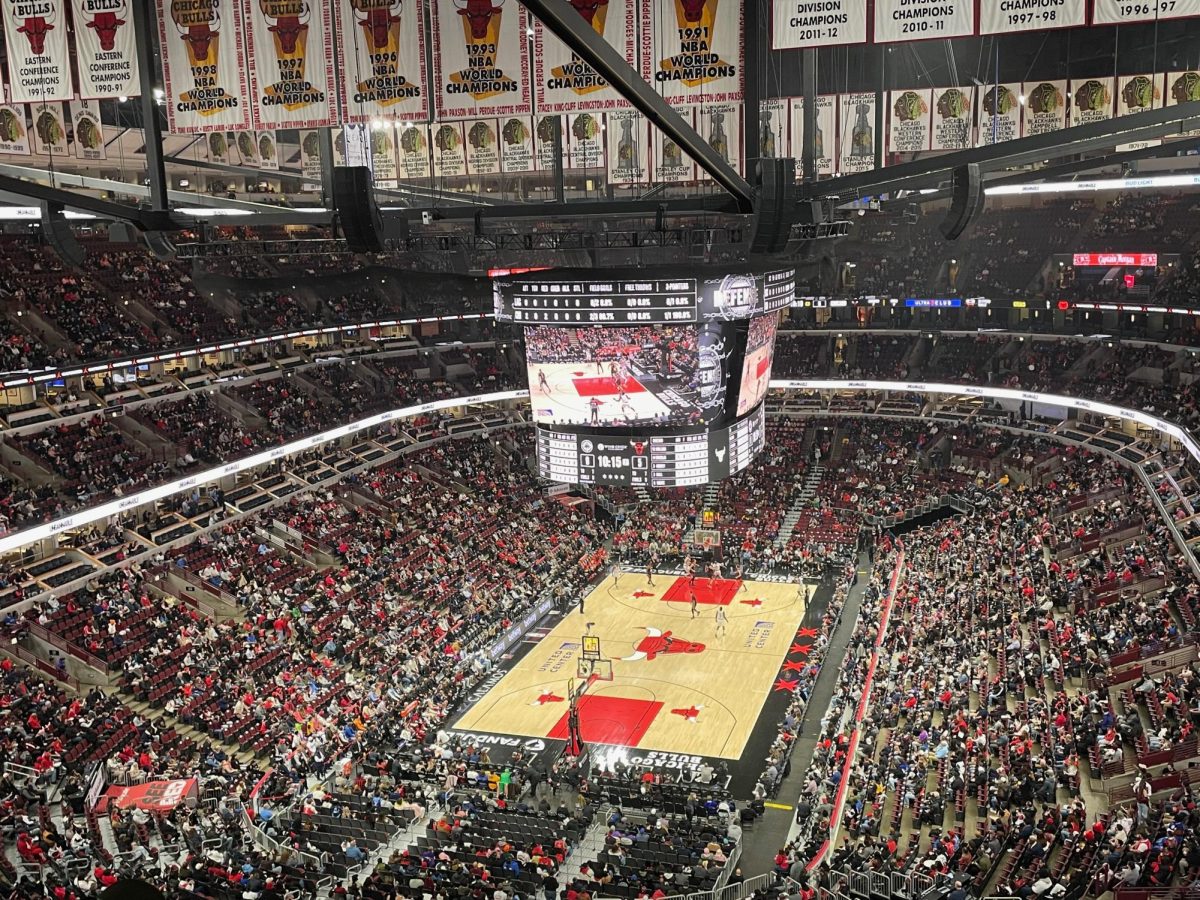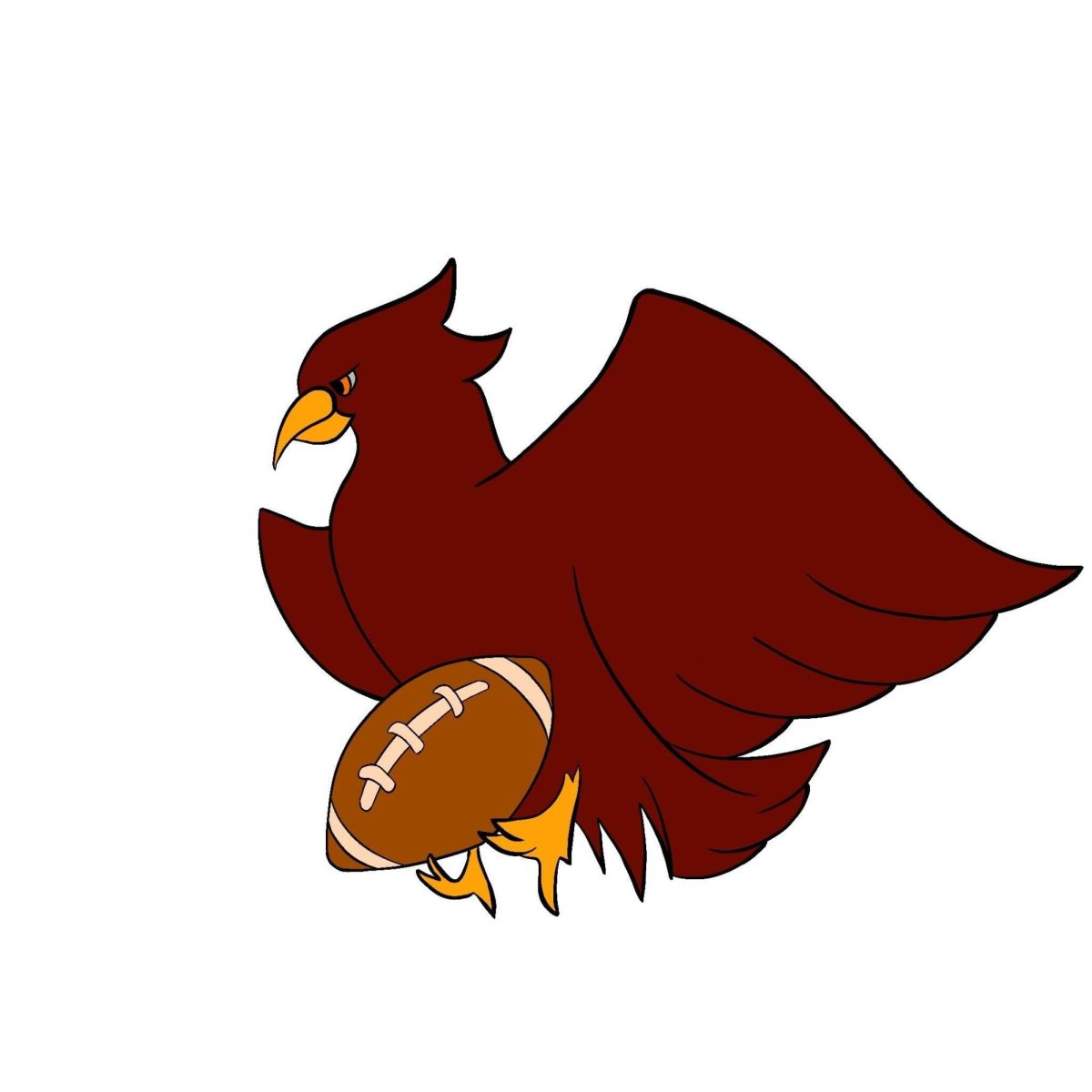The Maroons may have stumbled a bit early on at the indoor track and field national meet, but they came roaring back to claim NCAA honors.
The Chicago women’s distance medley relay (DMR) squad was able to overcome a slow start on the meet’s second day and pass three teams on the way to a seventh-place finish (12:11.98). With their performances, fourth-year Jessica Winter (1,600 meters) and third-years Jackie Kropp (1,200), Nellie Movtchan (400), and Al Robertson (800) reeled in the program’s first All-American awards since the 2004 indoor meet. The previous day saw both individual qualifiers miss the finals cuts: Winter was tripped midway through the mile run to end her individual hopes, and first-year Olivia Ndyabagye lost a quarter of a meter from her UAA record jump to finish out of the top eight.
The Maroons refused to let those early struggles faze them or to go away empty-handed. After an uphill battle in the DMR, they were rewarded for their perseverance.
“It was kind of surreal because I was with Jackie on the infield, and asked her, ‘Wait, we’re All-American?’” Robertson said. “That had always been a goal of mine in collegiate running, and it’s not easy. You just have to stick with the program, and we’ve been training since June with cross country. It just seemed like everything came together this season. We ran the DMR once to qualify, and at nationals we got that finish. So after it was like, ‘Does this mean what I think it means?’”
The DMR team’s prospects didn’t look great through the early portion of Saturday’s race though, as a tightly packed first leg prevented Kropp from succeeding in multiple pass attempts and pushed her as far outside as lane three. Each time Kropp tried to move ahead, someone else moved as well, and the 1,200-meter runner ended up out of the pack having to race a significantly longer distance than she had wanted.
“I had to stay on the outside—it was a better position for me instead of getting boxed in,” Kropp said. “When we ran the DMR to qualify, there were only two of us trying to hit the standard, so no one was in our way. It was just so competitive with all those close teams.”
“If she’s in that same leadoff role down the line, she won’t make the same mistake,” said Hall, emphasizing that Kropp was a victim of circumstance more than poor performance. “I wouldn’t have predicted that 10 teams would have been so close and with her locked in unable to step around. I think she grinded it out the best she could.”
In last place out of 10 going into the 400-meter leg, Kropp’s teammates began to chip away. Movtchan, Robertson, and Winter each passed one opponent to earn the seventh-place finish. Movtchan’s sprint was especially important not only in getting over the first hurdle but also in holding off her opponent’s late charge. Each of the two handoffs afterward was with another opponent close by, and both Robertson and Winter built off their foes to push ahead.
The teamwork was impressive for a quartet that had only raced as a group once before, at the February 20 Chicagolands meet, when they qualified provisionally for nationals with a time of 12:05.42. After that, Hall kept the four in their separate events to avoid stacking one race with “four national-caliber athletes,” as he called them after the Chicagolands performance. Though their time at nationals was six seconds slower than their qualifying mark, it was more the product of a congested race than a poor relay.
“We had a real full team effort there,” head coach Chris Hall said. “The kids did a good job of supporting each other and performing for each other.”
“Do I think we could have finished a little faster? Yeah, I do. But for the first time ever we’ve sent a DMR team and with three having never been there before, to come back as All-Americans—that was the hope going in, and that’s what we accomplished. The time wasn’t quite there, but the place finish was good for us.”
Winter seemed to have a better chance at All-American honors in the mile than in the DMR going into the meet, but those hopes were dashed about midway through the race when Winter’s heel was unintentionally clipped by the racer behind her. The fourth-seeded three-season superstar had been in the top four for most of the race, but as she tried to push the pace of a relatively slow race, the accidental trip knocked Winter hard to the ground and with it, her shot to make the cut.
“She fell hard, not a soft little fall,” Hall said. “By the time she got up, she was quite a ways behind. She did a nice job of closing the gap, but she had to spend so much energy to do that she wasn’t going to get into the finals. I shouted to her to shut it down. It didn’t make sense for her to go so hard and not be ready for the DMR.”
“I led the first lap, but after that a couple of the girls in the heat wanted to get out a little more aggressively and they cut in front of me,” Winter said. “There were a lot of people jockeying for position and I was boxed in at the half-mile mark. I wanted to get out of that trap, so I cut to the outside, but the girl next to me decided to make a move at the same time. We bumped into each other and fell down. By the time I got up, I was in last. I caught up to a few people, but it looked like I wasn’t going to make it through, so coach told me to back off and save it for the relay the next day.”
Having clinched her provisional spot a week earlier with a conference-record 5.60-meter long jump, Ndyabagye made the national meet in her first collegiate track season, but she was unable to reach her better distances of the season. Her 5.34-meter mark was 0.12 meters short of qualifying for finals.
Though disappointing because Ndyabagye had pushed longer distances during the season, the meet was more important for the long-term experience she gained than for an opportunity missed. Hall expects her to make many more national meets in her four years and says the first-year standout could also make it as part of the 4×100 meter relay in the outdoor season.
“Olivia got the chance to get exposure and experience, which was great for her. You have to get used to that national meet,” Hall said. “What she had jumped to get into the national meet would have made her an All-American. So clearly she should have walked away saying, ‘I could have done this.’ She got good experience, but she didn’t have her best day.”
Since the DMR is not run at nationals in the spring, the Maroons will have to earn their accolades in some new areas in the coming season, but Hall feels that all five of the indoor season’s stars could make it plus some more.
“I don’t believe these girls feel that this is it, my national experience for this year is over. They’re going to have another opportunity this year,” Hall said. “It was just a very rewarding indoor season. I think that we’ll be a better team indoors, but I’m really pleased with where our team is right now with the exposure that we got nationally, and we’ll get more kids in outdoors. We have a lot of other kids on our team that belong in those meets.”








